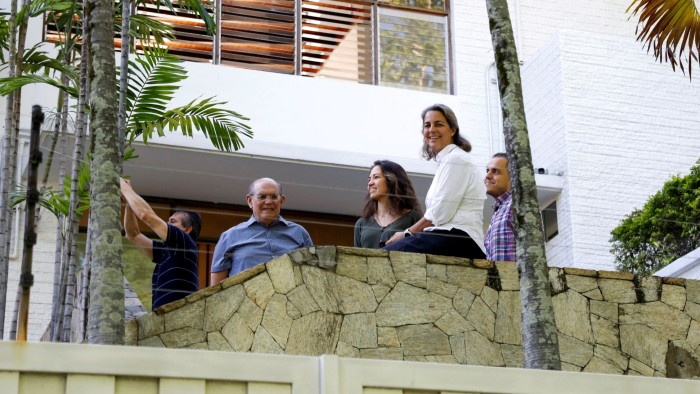Unlock the White House Watch newsletter for free
Your guide to what Trump’s second term means for Washington, business and the world
Five Venezuelan opposition members have been “rescued” from the Argentine embassy in Caracas and brought to US soil, more than a year after taking refuge from President Nicolás Maduro’s authoritarian government, US secretary of state Marco Rubio said on Wednesday.
The group of aides to opposition leader María Corina Machado fled to the embassy in March last year after warrants were issued for their arrest during a fierce crackdown on dissent. They included director of communications Claudia Macero and Magalli Meda, one of Machado’s chief advisers.
“The US welcomes the successful rescue of all hostages held by the Maduro regime at the Argentinian Embassy in Caracas,” Rubio wrote in a post on X on Tuesday night. “Following a precise operation, all hostages are now safely on US soil.”
It is unclear how the operation was carried out or whether it involved US security forces.
The US has been stepping up “maximum pressure” on the Maduro regime. President Donald Trump has tightened sanctions, revoked permissions for western oil companies to work there and ordered a 25 per cent tariff on all imports from countries buying its oil.
The dissidents are all members of Machado’s party, Vente Venezuela, which challenged Maduro in last year’s disputed presidential election. He was declared the victor despite evidence of fraud.
“Maduro’s illegitimate regime has undermined Venezuela’s institutions, violated human rights, and endangered our regional security,” Rubio said.
Machado, who lives in hiding outside Venezuela, in a post on X praised the “impeccable and epic operation for the freedom of five heroes of Venezuela”.
Argentina’s foreign ministry issued a statement praising the “successful extraction” of the opposition figures from Caracas to US soil, and thanked Rubio “for his leadership and personal commitment” to the operation.
The escape appeared to take place as Maduro and other top officials travelled to Moscow to attend a victory day parade marking the 80th anniversary of the end of the second world war. The Venezuelan government did not immediately respond to a request for comment.
Banned from running in the election last July, Machado’s place on the ticket was taken by retired diplomat Edmundo González. The opposition claimed victory and provided thousands of independently verified voting tally receipts as evidence. The US, Argentina and several other Latin American countries recognised González’s victory.
Nonetheless, Maduro was declared the winner by the government-aligned electoral authority and sworn in for a third six-year term in January. He launched a fierce crackdown, with more than 2,000 suspected protesters arrested. Machado, barred from leaving Venezuela, went into hiding, while González fled to Spain in September.
Maduro ordered diplomats from Argentina and other regional countries to leave Venezuela, and Brazil began running Argentina’s embassy in Caracas.
In December, after a month-long power outage at the embassy, Meda said it had become a “prison”. The government blamed the power cut on an unpaid utility bill. Another of the aides, Omar González, said at the time: “We are under constant surveillance and nobody can visit us without authorisation.”
Local human rights group Foro Penal has said 903 political prisoners are being held in Venezuela, including protesters and opposition leaders.
Tensions have been ratcheting up between Washington and Caracas over the treatment of 252 Venezuelans deported from the US to El Salvador, where they have been imprisoned in the maximum security Cecot prison complex built to house Salvadoran gang members.
Source link









